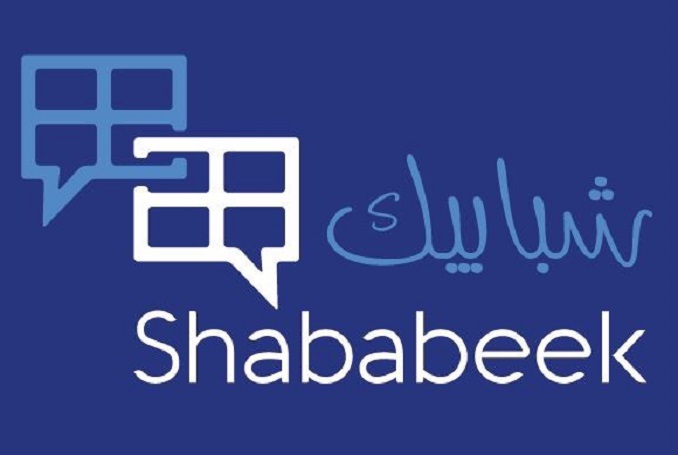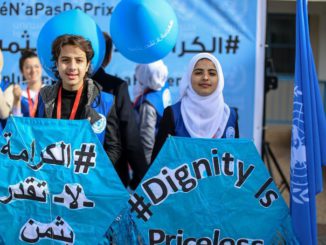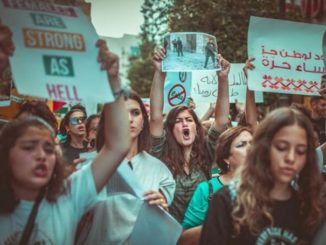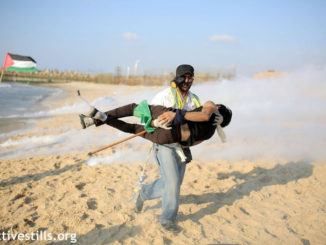
By Ramzy Baroud
Following the signing of the Oslo agreement between Israel and the Palestinian Liberation Organization (PLO) in 1993, Palestinian refugees vanished off the radar. The most pressing of all issues pertaining to the decades-long struggle and suffering of Palestinians became the least relevant, most marginalized.
No Palestinian refugee community was hit as hard as the hundreds of thousands of refugees languishing in Lebanon. They were already political marginalized and impoverished, especially after the PLO was forced out of Lebanon during the Israeli invasion of 1982. But the Oslo agreement, 11 years later, made their population even more invisible.
Their plight, and that of millions of refugees in Palestine, the Middle East and elsewhere was left to the ‘final status negotiations’ of a ‘peace process’ that proved futile. Now that the ‘peace process’ is stalled or dead, the ‘final status negotiations’ are more distant than ever.
But the fact is that every attempt at localizing the Palestinian narrative while pushing the Palestinian refugees – like those in Lebanon – outside a once coherent and equally representative Palestinian discourse has failed. The refugees remain at the heart of the Palestinian fight for freedom and rights, and Palestinian refugees in Lebanon remain the most powerful example of the grave injustice that has afflicted the Palestinian people for the last 70 years.
Now, the refugees in Lebanon are trying to tell their story, in their own way. In fact, no one is more qualified to carry out such an urgent task but those who have lived, experienced and fought against misery, despair and neglect.
These empowered voices are now joining forces through Shababeek, a new digital platform that tells the daily story of the refugees through the voices of Palestinian youth from the various refugee camps in Lebanon.
The effort is not only admirable, but quite serious and promising as well. Young and aspiring journalists are undertaking media training courses from capable and professional journalists through a series of workshops.
Those young journalists, at a later stage are set to train others. Over the course of time, Shababeek is hoping to prepare a generation of journalists, artists and storytellers that, with the support of others, will place Lebanon’s Palestinian refugees back on the map.
Launched in mid-January of this year, Shababeek – meaning ‘windows’ in Arabic – will open a badly needed space for youth to express themselves and connect with other refugee communities, in fact the world at large.
Shababeek is not intended for advocacy per se, nor – needless to say – as a propaganda platform. Yes, the youth intend to confront stereotypes of Palestinian refugees in Lebanon, but want to present a genuine image of their reality as it is.
The story of the refugees is not always a story of pain and misery. Often, it is the exact opposite. It is also a story of the resilience of people, of their ability to withstand and, yes, even flourish under the harshest of circumstances.
This can only be possible through collective techniques perfected over the course of decades of exile, war and siege; and it is the initiatives of these refugee communities and their ongoing solidarity that continues to empower those who persisted and resisted in refugee camps throughout all of these years, decades, generations.
Shababeek intends to tell us that story as well; to commemorate the refugee experience in Lebanon, and to also convey many beautiful endeavors and initiatives taking place in these communities as well.
Even before its official launch, those behind Shababeek have already developed a vision for a future beyond the initial launch phase. It includes making the website a solid online media training forum in all of Lebanon, but also outside.
Following the Arabic website launch, English and French websites are also to be launched (at a later stage depending on funding) to reach a wider audience and to press the story of the refugees on world consciousness.
While many volunteers are expected to work towards making Shababeek a success, the website will be employing a number of editors and correspondents on a full and part time capacities. The website and the trainings that preceded the launch are funded by ‘Selat: Links through the Arts’ of AM Qattan Foundation (Palestine) in partnership with Prince Claus Fund (Holland)), and is initiated and managed by Majed Abu Sharar Media Foundation (MASMF).
For these ‘windows’ of Palestinian refugees to be truly opened and convey the reality of life in Lebanon, Shababeek requires the support of all Palestinians and their friends everywhere.
It is time that we tell Palestinian refugees that your life doesn’t have to stay on hold because of a ‘peace process’ that never was. Your struggle is a priority now and always, and your story needs to be told, and urgently so.
– Ramzy Baroud is a journalist, author and editor of Palestine Chronicle. His forthcoming book is ‘The Last Earth: A Palestinian Story’ (Pluto Press, London). Baroud has a Ph.D. in Palestine Studies from the University of Exeter and is a Non-Resident Scholar at Orfalea Center for Global and International Studies, University of California Santa Barbara. His website is www.ramzybaroud.net.







